Sometimes being a writer is hard going. Like many, writing is almost a compulsion with me, but that doesn’t mean it brings me endless joys. There are plenty of nights where I stare at the blank screen or piece of paper, cursing myself for not having any ideas or an inability to put my ideas into words. Other times I manage to write thousands of words in one sitting but when I read back over it, I’m horrified at the trash I’ve written. Low self-esteem and creativity often go hand-in-hand. Of course, that’s not always the case, some artistically minded people have egos the size of the universe… that’s just not me.
When you get past the internal difficulties of the creative process, you are then faced with far more prosaic difficulties. This is mostly the case when it comes to novel – or any long-form of written work. Whether you are an intensive planner and plotter or not, structuring and writing a novel can be difficult. And let’s face it, traditional word processing programmes (such as Word) are just not cut out for it. Having said that, life isn’t so bad – imagine if you still had to hand-write or typewrite your entire book.
Luckily, we live in the modern age. There are countless apps for helping people with their research, automatically adding web pages or clips you find interesting or helpful for you to come back later. With the advent of tablets, you can now writer quick notes with your finger and convert them to typed text (depending on the neatness of your handwriting). But what you may or may not be aware of, is an incredibly useful app for helping you write your novel: Scrivener.
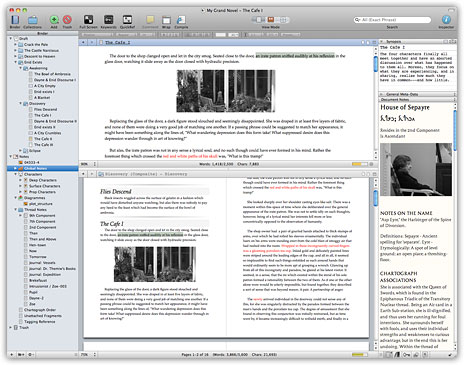 Literature and Latte (the company behind Scrivener and Scapple) was originally established in 2006 by someone just like you (Keith Blount): a writer who found that the existing word processing programmes weren’t adequate for his needs. Scrivener was originally written for Mac but is now available on Windows as well. With some tweaking, the windows version can run on Linux as well.
Literature and Latte (the company behind Scrivener and Scapple) was originally established in 2006 by someone just like you (Keith Blount): a writer who found that the existing word processing programmes weren’t adequate for his needs. Scrivener was originally written for Mac but is now available on Windows as well. With some tweaking, the windows version can run on Linux as well.
Scrivener is at its most basic level, a word processing tool. It allows you to create long-form documents as you would in any other writing software – by typing! While you can format text as easily as you would in Word, Scrivener’s real strength lies in the help it gives writers with structuring their content and incorporating notes and research into one place. Scrivener helps writers through all the stages of creation – from research and brainstorming, through to writing, reviewing, and editing. Once that’s done, you can also use the software to compile and export your completed work.
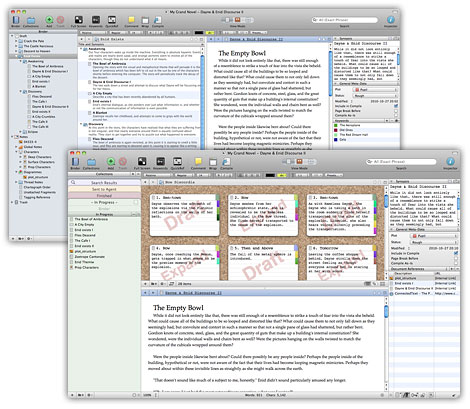 For those of you who haven’t come across Scrivener before, you are probably wondering what makes this programme any better than an ordinary word processing programme. The best feature of the programme, as far as I’m concerned, is the ease with which you can move content around. Have you ever tried writing a long piece of fiction and decided that you actually want to change around the order of scenes? In word, that requires a lot of clunky copying and pasting, but in Scrivener, just drag and drop! Of course, it is dependent on you structuring your draft into sections/scenes/chapters, but who wouldn’t do that?!
For those of you who haven’t come across Scrivener before, you are probably wondering what makes this programme any better than an ordinary word processing programme. The best feature of the programme, as far as I’m concerned, is the ease with which you can move content around. Have you ever tried writing a long piece of fiction and decided that you actually want to change around the order of scenes? In word, that requires a lot of clunky copying and pasting, but in Scrivener, just drag and drop! Of course, it is dependent on you structuring your draft into sections/scenes/chapters, but who wouldn’t do that?!
Another incredibly useful tool is the character sketches. In built templates prompt you for descriptions of your characters: physical descriptions, occupation, interests, family, friends, notable characteristics, and so on. Similar templates also exist for locations. This is a great way to keep track of things for easy reference – what was it you called your main character’s grandmother? Who did you say her favourite band was? You can also add other documents and web pages as notes and research reference.
I don’t know how you plot out your books, but I love my index cards. If you come into my study you will probably find the floor covered in them – each one representing a scene or major plot point. This way, I can easily rearrange them or figure out what should come where. Scrivener allows you to do this digitally on the corkboard. You can make a brief synopsis of each scene and view the entire novel as a compilation of index cards.
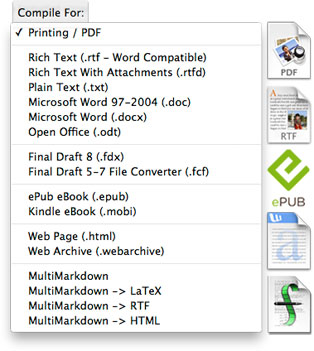 The compile and export functions make it easy for you to transfer your document back into traditional word processing programmes or save as a pdf. There are also options for compiling your document in certain styles – did you want it exported simply for printing or would you like to see it laid out in a traditional paperback novel layout? You can add title pages, copyright, dedications, etc and can even export the document into ebook formats (including adding metadata for discoverability).
The compile and export functions make it easy for you to transfer your document back into traditional word processing programmes or save as a pdf. There are also options for compiling your document in certain styles – did you want it exported simply for printing or would you like to see it laid out in a traditional paperback novel layout? You can add title pages, copyright, dedications, etc and can even export the document into ebook formats (including adding metadata for discoverability).
Editing and reviewing is also made easy with the ability to add comments, much like in word, as well as colour-coded revision modes. Also, often it is much easier to hear awkward phrases when someone else reads your text for you. Scrivener has an option to get the programme to read your words back to you.
While it is obviously incredibly helpful for novel writers, with several templates for basic novel structures, Scrivener also contains templates for other forms or written works. There are templates for short stories, essays, non-fiction books, research proposals, radio scripts, screenplays, comic book scripts, stage plays, poems, recipe collections, etc. You can also create your own template from scratch and save it for future use – really helpful if you have a particular style that you hope to apply across a series of works.
Having discovered Scrivener for my fiction writing, I will never go back to traditional word processing for my writing. If you haven’t tried it, you can get a free trial from their website.
N.B. Scivener’s people did not pay me to write this! This is purely written from discovering the tool and my absolute love of using it.
 Pop Verse Pop Culture Universe
Pop Verse Pop Culture Universe
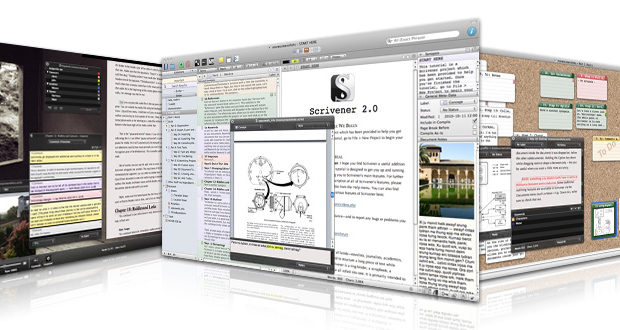
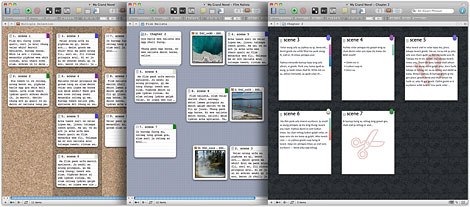




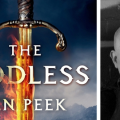

One comment
Pingback: Scrivener: A writer’s best friend in app ...